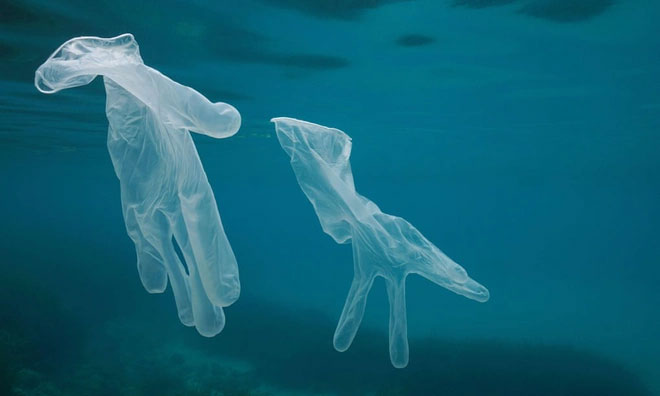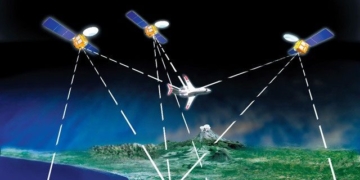A new study has revealed that 25,900 tons of plastic waste from the Covid-19 pandemic—equivalent to more than 2,000 double-decker buses—have been dumped into the oceans.
In a study published on November 8 in the Proceedings of the National Academy of Sciences (PNAS), researchers stated: “The Covid-19 pandemic has led to a surge in demand for single-use plastics, adding further pressure to the already uncontrolled global plastic waste problem”, according to The Guardian.
The two authors, Yiming Peng and Peipei Wu from Nanjing University, China, emphasized that due to inadequate management processes, the amount of plastic waste (including medical protective gear, masks, and gloves) has exceeded the waste processing capacity of many countries.
Since the pandemic began, 193 countries and territories have generated approximately 8.4 million tons of plastic waste, the authors noted.
“Plastic waste, which can easily drift across vast areas of the oceans, has the potential to injure or even kill marine life,” the research team asserted.

Since the pandemic began, 193 countries and territories have generated approximately 8.4 million tons of plastic waste. (Photo: Alamy).
The study found that 46% of the plastic waste originated from Asia (due to the widespread use of masks by residents), followed by Europe (24%), the Americas (22%), and Africa (8%).
According to scientists, most of the plastic waste from the pandemic is expected to end up on beaches or sink to the ocean floor by the end of this century.
Authors Peng and Wu reported that 87.4% of the waste came from hospitals, rather than the demand for personal protective equipment (PPE), which accounted for only 7.6%. Packaging and testing kits made up about 5%.
As of August, thousands of tons of masks, gloves, and testing kits have flowed into the oceans via 369 major rivers. Among them, the Shatt al-Arab River carried 5,200 tons of PPE waste, the Indus River transported 4,000 tons, and the Yangtze River (China) accounted for 3,700 tons.
“These findings highlight the rivers and certain basins that require special attention in plastic waste management,” the research team noted.


















































